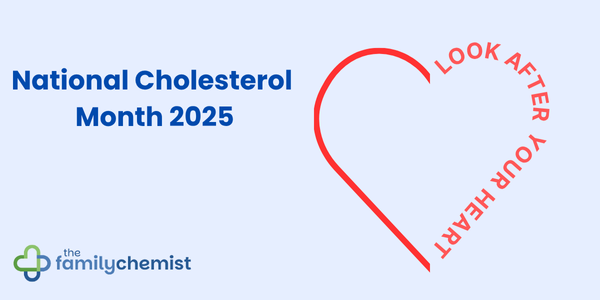How to Be the Boss of Your Cholesterol this National Cholesterol Month
A significant percentage of people have high cholesterol without even realising it. Often called a ‘silent’ condition, high cholesterol typically shows no symptoms until it leads to serious health problems such as heart disease or stroke. That’s why awareness and prevention are so important.
This October is National Cholesterol Month, and we are encouraging everyone to take a moment to think about their cholesterol levels. Small, simple lifestyle changes, such as improving your diet, increasing physical activity, or quitting smoking, can make a lasting impact in your heart health.

What is Cholesterol and Why it Matters?
Cholesterol is a type of fat (lipid) found in your blood which is made in the liver and found in some foods. And though villainised in the media, cholesterol is essential for:
- Building and maintaining cell membranes
- Producing hormones
- Making vitamin D
- Aiding digestion (via bile)
The key is making sure that you are not consuming too much which can cause damage to your body leading to complications in the future.
Cholesterol is often categorised into LDL Cholesterol, often labelled ‘bad cholesterol’ which is the form which can cause blockages in the arteries and lead to heart disease. And HDL Cholesterol labelled as ‘good cholesterol’ which is used to carry the ‘bad cholesterol’ from your cells back into the liver to prevent disease and build up.
Why Monitoring Your Cholesterol Levels is So Important
- It’s a Silent Risk
You won’t know you have high cholesterol unless you test. Even people who are young, slim, or otherwise healthy can have elevated levels.
- Heart & Circulatory Disease Link
High cholesterol is a known risk factor for heart disease, strokes, and other circulatory conditions. When ‘bad’ cholesterol builds up in your arteries, it can lead to blockages, reduced blood flow, and damage to your cardiovascular system.
- It’s Modifiable
Unlike some risk factors you can’t change (e.g. genetics, age), cholesterol is responsive to lifestyle. Your diet, physical activity, weight, and other habits all play a part and even a slight change can make a huge difference in preventing disease.
- Prevention Is Powerful
By monitoring your cholesterol regularly, you can spot problems early, make changes, and reduce your long term risk of serious cardiovascular illness.
Why High Cholesterol Matters
Too much cholesterol in your blood, often caused by a diet high in saturated fats and other unhealthy lifestyle choices, can lead to a harmful build-up in the walls of your arteries. Arteries are the large blood vessels that carry oxygen-rich blood throughout your body. When cholesterol builds up, it forms plaques that cause the arteries to become narrower and less flexible. This condition is known as atherosclerosis.
As the arteries narrow, blood flow becomes restricted. This puts extra pressure on the heart, which has to work harder to pump blood around the body. Over time, this added strain can weaken the heart and affect how well it functions.
Plaque build-up can also lead to the formation of blood clots. These clots may block the artery where they form or travel through the bloodstream and get stuck in another part of the body. If a clot blocks blood flow to the heart or brain, it can cause a heart attack or stroke.
Managing your cholesterol is essential for protecting your heart and overall health. Even small lifestyle changes can make a big difference.

What Can I Do to Lower Cholesterol?
The good news is there are treatments and changes that you can make easily to make a noticeable difference in your cholesterol levels. Lowering your blood cholesterol levels can lower your risk of severe illness. And prevent any pre-existing conditions from getting worse.
Ways to Lower Your Cholesterol Levels:
- Avoid smoking
- Eating plenty of fibre
- Cutting back on sugary foods and drinks
- Consistent physical exercise
- Moderate to low alcohol intake
- Choose healthy fats in your diet
The Bottom Line
High cholesterol may not show any obvious signs, but its impact on your long-term health can be serious. The good news is that it’s something you can take control of. By getting your cholesterol checked, understanding your risk, and making simple, sustainable lifestyle changes, you can significantly reduce your chances of heart disease, stroke, and other related conditions.
This National Cholesterol Month, be the boss of your cholesterol by familiarising yourself with your cholesterol levels. Knowing your numbers helps you take control of your health and making the changes you may need. Our Heart Health Blood Testing Kits make it easy to get clear and in-depth insights into your health. With this information you can make the right steps to look after your heart.







